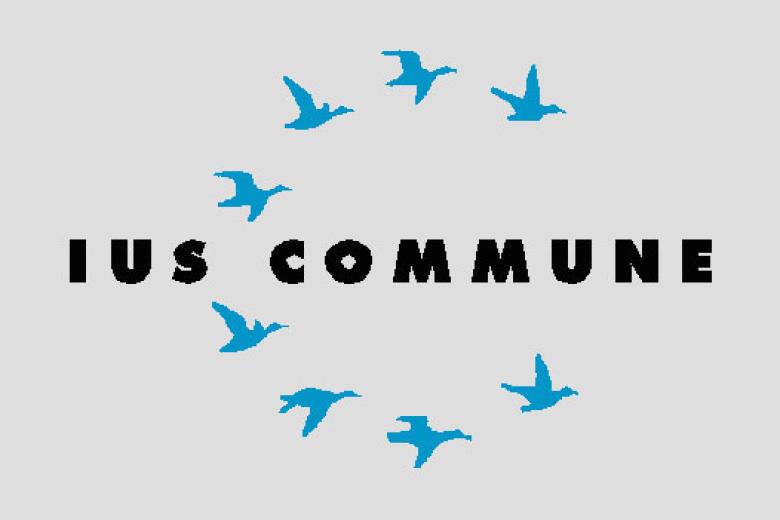McDonaldizing the fight against organised crime?
Why it is so challenging for Dutch authorities to effectively implement the government policy against serious drug related organized crime? Recently, my colleagues and I from Maastricht University and Erasmus University Rotterdam published an article in the Dutch Tijdschrift over Cultuur en Criminaliteit in which we reflected on this question. Our findings highlight the problematic nature of the key concepts underlying the policy and the challenges this creates for stakeholders. Interestingly, the results furthermore show the inability of those stakeholders to learn from past experiences. For those who do research on the fight against drug related organized crime, the last issue holds significant implications, prompting a need to redirect the research focus.
McDonaldization
The journal issue to which we contributed was a thematic issue focussing on contemporary developments in criminal justice in the Netherlands. We reflected on these developments from the perspective of George Ritzer’s work in sociology that highlights the growing influence that rational business models have on societal developments. According to Ritzer societal processes are increasingly guided by elements such as efficiency, calculability, foreseeability and control. Ritzer illustrates this by focusing on the business model of McDonalds and subsequently shows how this development can also be observed in other societal areas. Also in the field of criminal justice, we can indeed witness an increasing emphasis on standardization, efficiency, calculability and the use of technological control mechanisms. For instance, since the early 1990s New Public Management has become fashionable. It is an approach that is critical of the poor effectiveness and efficiency of the government and it propagates that management principles from the private sector should be embraced to reform and improve the public sector. As a result, greater emphasis is placed on business efficiency, control and accountability within the government organization.
In his work, Ritzer does not only explain how the implementation of such rational business models leads to more efficiency; he also criticizes them for the many negative side effects. We also observed such implications within the context of our research on the fight against serious organised drug crime.[1] Due to the scope and urgency of the problems and the enormous financial investments made by the government, there is increasing pressure on stakeholders to (pre)define and measure the output of their interventions to prove that it works. In many occasions, this turns out to be very difficult for methodological reasons. More importantly, this urge to predict and control stifles the freedom and innovation needed in order to combat serious forms of crime. Nevertheless, we also found that the fight against drug related organized crime might actually also benefit from more McDonalidization. In particular when it comes to the clarification of the key concepts underlying government policy (business model), the organisation of the authorities and stakeholders implementing the policy (business franchise) and lastly, the ability of those actors to learn from their actions (business optimization).
Business model
According to Ritzer efficiency and effectiveness require a clear vision about the leading problems and the approach to manage them. At the basis of McDonalds’ success lies a clear vision of the business model regarding its products, the process of production and in turn the franchise structure through which it is operationalized and managed. If we look at the leading policy vision in the Netherlands on how to deal with organized drug crime, it becomes apparent that the vision is not conceptually clear. The policy can be paraphrased as follows:
The reality is that criminals use public services and legal companies for their illegal activities, which causes normative standards to blur and the sense of safety and quality of life to diminish. The criminal activities corrode and destabilize our social, economic and political institutions that are crucial to Dutch democratic society. This effect is called undermining (ondermijning). The Netherlands should be made less attractive to (international) organized crime. To achieve this, a coherent strategy is required in which prevention, increasing social resilience, disruption of criminal networks and punishment are all central. Various organizations jointly play an important role in this integrated approach (geintegreerde aanpak): the police, the public prosecution service, the tax authorities, the fiscal intelligence and investigation service, customs, the Dutch Marechaussee, the local government, as well as private parties such as banks, transport enterprises and mainports, notaries, and agricultural companies.[2]
Analysis of policy documents and the political discourse with regard to serious drug related organized crime reveals that the above-mentioned terms undermining and integrated approach are key phrases or signifiers that frame the crime problem and how it should be dealt with. These terms not only feature in policy documents of the government, but they have also gained traction in the media, literature and academic work and they have become buzzwords.
During our research, we observed that such framing has led to more awareness about the urgency of organized drug crime and the approach needed to tackle it. Usage of the specific term undermining highlights the urgency, because it conveys that the crime menaces the key structures and institutions of our democratic society. With regard to the approach, the notion of an integrated effort conveys the idea that a range of both public and private stakeholders has a responsibility to take action. It is not a matter for the police alone.
Our research thus confirms earlier arguments by scholars that the two concepts undermining and integrality have a strong mobilizing power. Essential to their mobilizing power is that those terms are vague and therefore have the ability to be meaningful in many ways to different audiences. This is very helpful in making a policy appealing and in generating acceptance and support. However, the downside of such broad catch phrases is that although they can be mobilizing and rally stakeholders behind a policy, in operational terms they can become paralyzing. The heterogeneity of the concept of undermining makes it difficult to define the exact nature of the problem and as a result, the integrated nature of the approach that is required to curb the problem is hard to define. In practice, this causes net widening and lack of focus in the sense that many issues become framed in terms of undermining and therefore require attention, which in turn leads to new interventions requiring more actors to become involved in tackling the problem.
Franchise
With many new initiatives being taken to curb the numerous facets of undermining we see new public and private stakeholders joining and in order to facilitate their integration, new structures and institutions are being put in place. However, what we see in terms of Mcdonaldization, is that the franchise is growing rapidly, but a clear overarching franchise structure and coherent management are often lacking. Instead of leading to more efficiency and effectiveness, the drive to connect and integrate the various stakeholders involved, results in endless talk to align and set priorities. It leads to a lack of decisiveness and administrative inertia.
Our analysis shows that the policy revolving around the concepts of undermining and integration can generate a lot of energy. It can mobilize, as mentioned before. However, to retain that energy and to safeguard the approach in the longer term, it is necessary that the strategy becomes harnessed by a clear, shared, overarching vision, at regional and national level regarding what needs to be done, by whom and how this should be managed.
Optimization
These insights are not radically new. In 1995, a thematic issue published by the Dutch Research and Documentation Centre (WODC) already reflected on the challenges involved when it comes to an integrated approach and many of the aspects that we observed were already addressed in that issue.[3] Since then, in many other publications, the same critical observations have been repeatedly made. What makes McDonalds efficient and effective, is that it learns from past experiences, because otherwise it would crumble in the competitive environment in which it operates.
Companies like McDonalds build on Taylor's insights about scientific management to increase efficiency and effectiveness. The idea was that a critical scientific analysis could contribute to optimizing business processes. The Dutch authorities appear to be poor students in this respect. Policy implementation has been taking place for a long time according to fixed principles and patterns, but these are hardly questioned on the basis of available critical scholarly insights. Somehow, authorities lack the ability to effectively optimize their ‘business’, as lessons learned from research are often not internalized and therefore do not lead to the required changes.
Implications for research
For those who do research on the fight against drug related organized crime, the last issue holds significant implications, prompting a need to expand or even redirect the research focus. To elaborate, consider for instance the issue of financial criminal investigations. Organized drug crime yields substantial illicit profits. This makes the tracing and confiscation of criminal assets a crucial element in the battle against such criminal networks, because it directly affects criminals where it hurts the most – in their wallets. However, since decades the practical implementation of this strategy proves challenging, as the amount of seized assets starkly contrasts with the estimated exorbitant profits generated by the drug industry. Research has repeatedly highlighted the challenges in financial policing, particularly in embedding it structurally within police practices. The findings in our latest research on combating organized drug crime also echo those of recent and even decades-old studies.[4]
This persistence of recurring research findings suggests that existing critical knowledge is not effectively internalized by relevant actors. So, instead of repeating past insights, researchers should redirect their focus and question why authorities struggle to integrate lessons from previous experiences. Such research can create a better understanding as to what the challenges to learning are and how these can be addressed. It can help to foster better learning processes that are crucial when it comes to optimizing the fight against organized drug-related crime.
[1] Nelen, H., van Wingerde, C. G. K., Bisschop, L. & Moerland, R. (2023) Koers bepalen: Over de lessen van de versterking aanpak georganiseerde drugscriminaliteit. Den Haag: Boom Criminologie.
[2] www.overheid.nl
[3] Wetenschappelijk Onderzoek- en Documentatie Centrum (WODC) (1995) Integrale Veiligheid, Justitiële Verkenningen, 1995/05.
[4] [4] Nelen, H., van Wingerde, C. G. K., Bisschop, L. & Moerland, R. (2023) Koers bepalen: Over de lessen van de versterking aanpak georganiseerde drugscriminaliteit. Den Haag: Boom Criminologie.
C.A.R. Moerland
Roland Moerland is Associate Professor of Criminology and Law at Maastricht University. He is the director of the Forensics Criminology and Law Master Program.

-
Known Unknowns: A Macro-Meso-Micro Socioeconomic Approach to Uncover the Dark Number of Victims of Human Trafficking for the Purpose of Labour Exploitation
These last few weeks, Minister Paul of Social Affairs and Employment of the outgoing cabinet has been in the news for unilaterally deciding no longer to gradually phase out the Dutch regulation that allows temporary employment agencies to deduct a quarter of the minimum wage from migrant workers...

-
The Decennial Jubilee of Ius Commune in the Making
On 27 November 2025, the tenth edition of the workshop series on Ius Commune in the Making took place within the 29th Ius Commune Conference organised by the University of Amsterdam. This blog entry reproduces a public address by one of the members of the organising committee of that workshop series...

-
Overriding Mandatory Rules in International Arbitration: Balancing Business Freedom and State Interests
Imagine two companies from different countries enter a business deal. They pick a neutral country’s law to govern their contract and agree to arbitrate any disputes, thinking they can sidestep each other’s national courts. But what if one country’s law absolutely prohibits something in the deal –...
